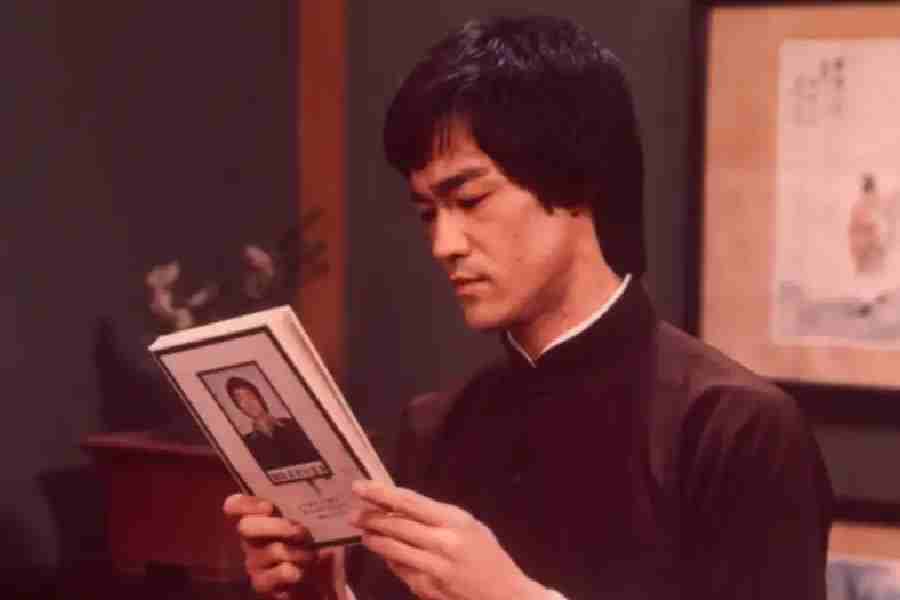"Empty your mind, be formless. Shapeless, like water." Kung fu legend Bruce Lee's most famous quote is not simply his advice for would-be martial artists on how to deftly evade opponents. It also represents a philosophical way of approaching the world that still has resonance for his fans.
A book of his philosophical writing, "Artist of Life" — which was translated into and published in German for the first time in 2023 as "Empty Your Mind" — contains valuable insights into his peace. This aspect of the film star's life is often forgotten in remembering his legacy, half a century on from his untimely death.
He was born as Lee Jun-Fan in San Francisco in 1940 to Grace Ho and Lee Hoi-chuen, who was a famous Cantonese opera singer and film actor.
The future kung fu artist spent most of his childhood in Hong Kong where he was a child actor in several movies.
But soon it was clear that his interest was not limited to acting. He began boxing and dancing as a teenager and trained in Wing Chun, a form of conceptual kung fu, as a way of combining his graceful movements and love of fighting.
Aged 18, he moved to the United States for college, where he also taught martial arts and developed his own early form of mixed martial arts (MMA), Jeet Kune Do.
At the same time, he appeared in several US TV shows and movies, usually in small roles associated with martial arts.
It was not until he returned to Hong Kong that he landed his first leading roles, with Golden Harvest studios. He was at the top of his worldwide fame, when he died unexpectedly of a cerebral edema on July 20, 1973. He was only 32 years old. The last film released during his lifetime was "Way of the Dragon," in 1972, while "Enter the Dragon" was completed after his death, in 1973 — both were Hollywood hits.
While Lee's legacy is mainly defined by his superior physical fitness and technical fighting skills, the philosophical tenets that he developed during his short life have received less attention. His own martial art style of Jeet Kune Do sums up the synthesis of these dual parts of his life.
"The techniques and philosophies of Jeet Kune Do can be applied to real combat as well as challenging life situations. Jeet Kune Do consists of physical techniques and applied philosophies and requires the individual to train him or herself to their most cultivated state of being-ness," according to the Bruce Lee Foundation's website. Perfect awareness of one's own body and peace with one's own place in the world is vital to Lee's life work.
His advice to "be water, my friend," has also been much-quoted down the years and is linked to this philosophy of malleability and complete awareness of one's own physical and spiritual self. Like water pouring into a cup and changing its shape, Lee advised adaptability while remaining true to one's own identity.
The most important part of Lee's legacy may be what he did for Asian actors in Hollywood. He was the first truly bankable Asian-American Hollywood star and, despite his untimely death, he managed to pave the way for future generations. He was one of the first Asian-American stars to have a starring role in a major international movie.
But his role as a well-read philosopher and thinker also deserves more attention from history. The book "Artist of Life" takes excerpts from his own private diaries. Meanwhile, his legacy is carried on by his daughter, Shannon Lee, who gives regular interviews and hosts a podcast about her father, simply titled, "Bruce Lee Podcast."











